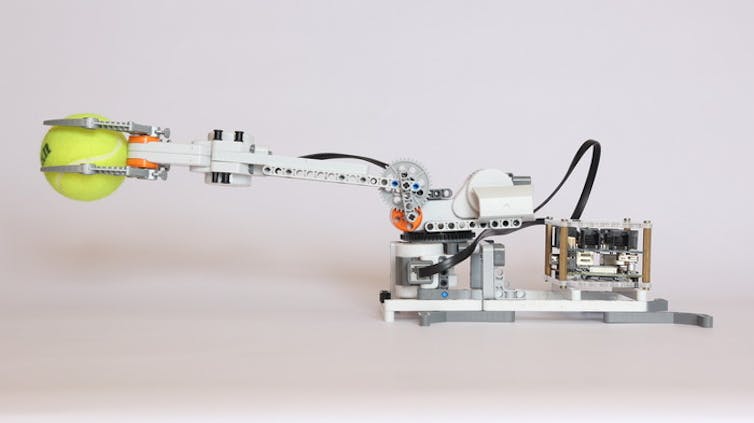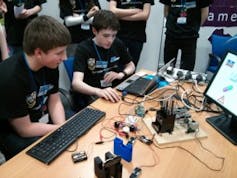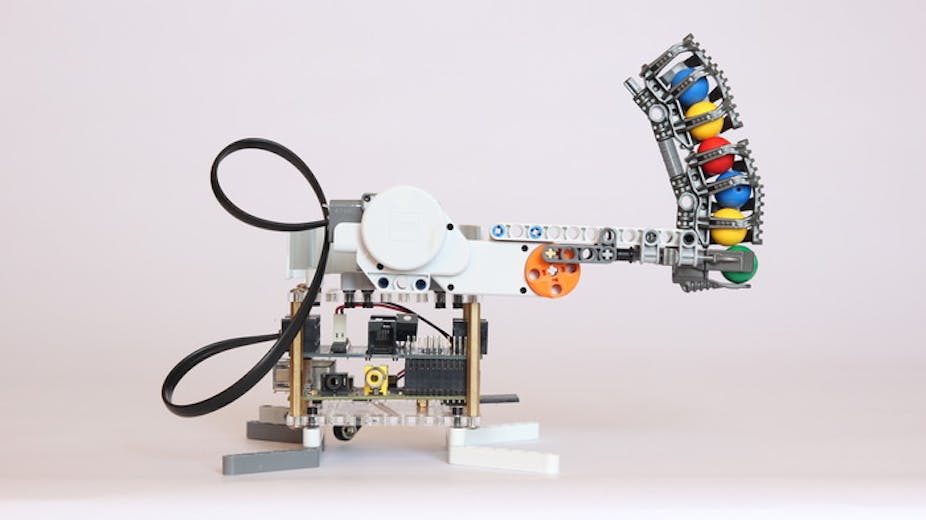The Raspberry Pi project began when a few of us in Cambridge bemoaned the fall in numbers of computer science applicants and the decline in hobbyist programmers.
Five years on, much has changed. Applications for computer science at Cambridge are at an all-time high. The computing curriculum for UK schools has been rewritten to help provide children with an appreciation of the powerful and general-purpose tools that computer science can provide. After-school computing clubs are flourishing and often oversubscribed. The maker community is growing in the UK.
The Raspberry Pi charity has now produced 2 million low-cost, credit-card-sized computers. Raspberry Pis can be plugged into your keyboard and TV and turned into almost anything. A vast community of users has grown out of the project, each using their Raspberry Pi to produce something completely new. Here are five of my favourite projects that have been produced by that community so far.
Teaching kids to code by accident
The Sonic Pi project looks like a project to get kids making their own synthesisers but is in fact also a way to teach them the fundamentals of programming by stealth. It’s a scheme that could either inspire the next Tim Berners-Lee or the next DeadMau5, or maybe even both.
Building stuff brick by brick
BrickPi started out as a Kickstarter project and eventually attracted close to US$130,000 from more than 1,000 backers. It’s a system that allows you to turn your Raspberry Pi into a robot by attaching Lego parts and motors and the results are pretty impressive. The site offers tutorials on how to turn your Raspberry Pi into a weather station that tweets the temperature, a ball shooter and a robotic arm.

Helping to save the Rhino
Raspberry Pis are playing a part in the fight against the illegal hunting of endangered rhino in some of the remotest parts of Africa.
A project led by the Zoological Society of London has been using the computers to control satellite-connected cameras taking pictures of rhino movements and poaching activity.
Building your own microscope
The open source microscope is part of a wider project to develop quality scientific instruments in an open access environment on a budget.
OpenLabTools says that where a conventional microscope costs between US$15,000 and US$80,000 this version, run using a Raspberry Pi, can be built for US$800. The idea is for the instructions to be posted online so that research labs around the world can build their own low-cost instruments.
Medicating safely
A competition ran last year to get school children using their Raspberry Pis. One of my favourites was a project entered by Dalriada School in Northern Ireland.

Having clocked that it can be difficult for patients to keep track of their medication, the Dalriada pupils developed a pill dispenser that uses the Raspberry Pi to receive information from doctors. A GP can control the dispenser via the web, programming it to drop out pills at the right time, so the patient can stay on top of their treatment.
Grassroots movements and government action will, I hope, help bring about a step change in the way people perceive computer science and use computers. The stakes could not be higher in my opinion.
The next two decades will see computers and robots capable of outperforming humans on an ever greater range of tasks. These changes will go far beyond office productivity gains or advances in communication technologies and will spill over into the future jobs market and sectors such as manufacturing, healthcare, transport and education. They will also be central in helping us to monitor and protect the physical world.

